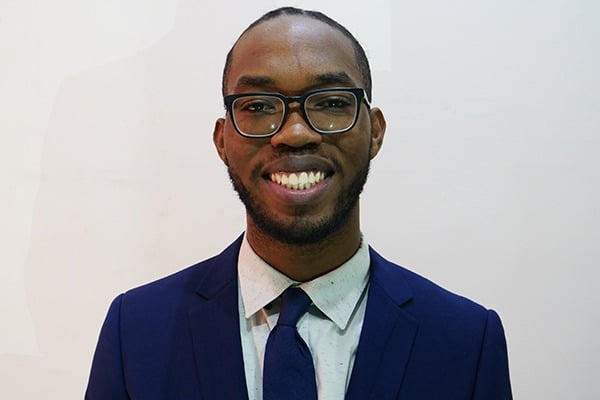In recognition of his work in the lab and his desire to lead the next generation of scientists, Travis Brady was recently awarded a Ford Foundation Fellowship. Brady is pursuing his PhD in biomedical engineering at Johns Hopkins University, and has a goal of one day leading his own lab that will emphasize mentorship, communication, and community engagement.
“Researchers at the undergraduate, graduate, and post-doc level will be paired with high school mentees,” said Brady. “It will emphasize the importance of not only generating knowledge, but also disseminating it to a wide audience.”
Brady became fascinated in the STEM fields early in his adolescence. After earning his bachelor’s degree in biomedical engineering from Yale University, he began his career teaching biology and engineering at Success Academy Charter School in New York City.
“I have had the immense privilege of being surrounded by phenomenal teachers, mentors, and peers for most of my education, and I owe much of my passion to the environments that helped shape me,” said Brady. “This is a large part of the reason I chose to teach following my undergraduate degree. I’ve always had a strong desire to nurture the same love of STEM in students much like myself.”
Brady’s research focuses on modeling and treating cardiovascular disease using in vivo and in vitro models. His in vivo models use hypertensive, or high blood pressure, mouse models, and his in vitro models use human induced pluripotent stem cells (hiPSCs).
“This fellowship will allow me, with guidance from Dr. Lakshmi Santhanam and Dr. Sharon Gerecht, to be more flexible, and perhaps more ambitious, with my research direction,” said Brady. “Having access to the Ford Fellows network and affiliated events such as the annual conference will undoubtedly be a boon for my career development, and will offer an even broader array of collaborators, mentors, and friends.”
The Ford Foundation seeks to increase the diversity of the nation’s college and university faculties by increasing their ethnic and racial diversity, maximizing their educational benefits of diversity, and increasing the number of professors who can and will use diversity as a resource for enriching the education of all students.

